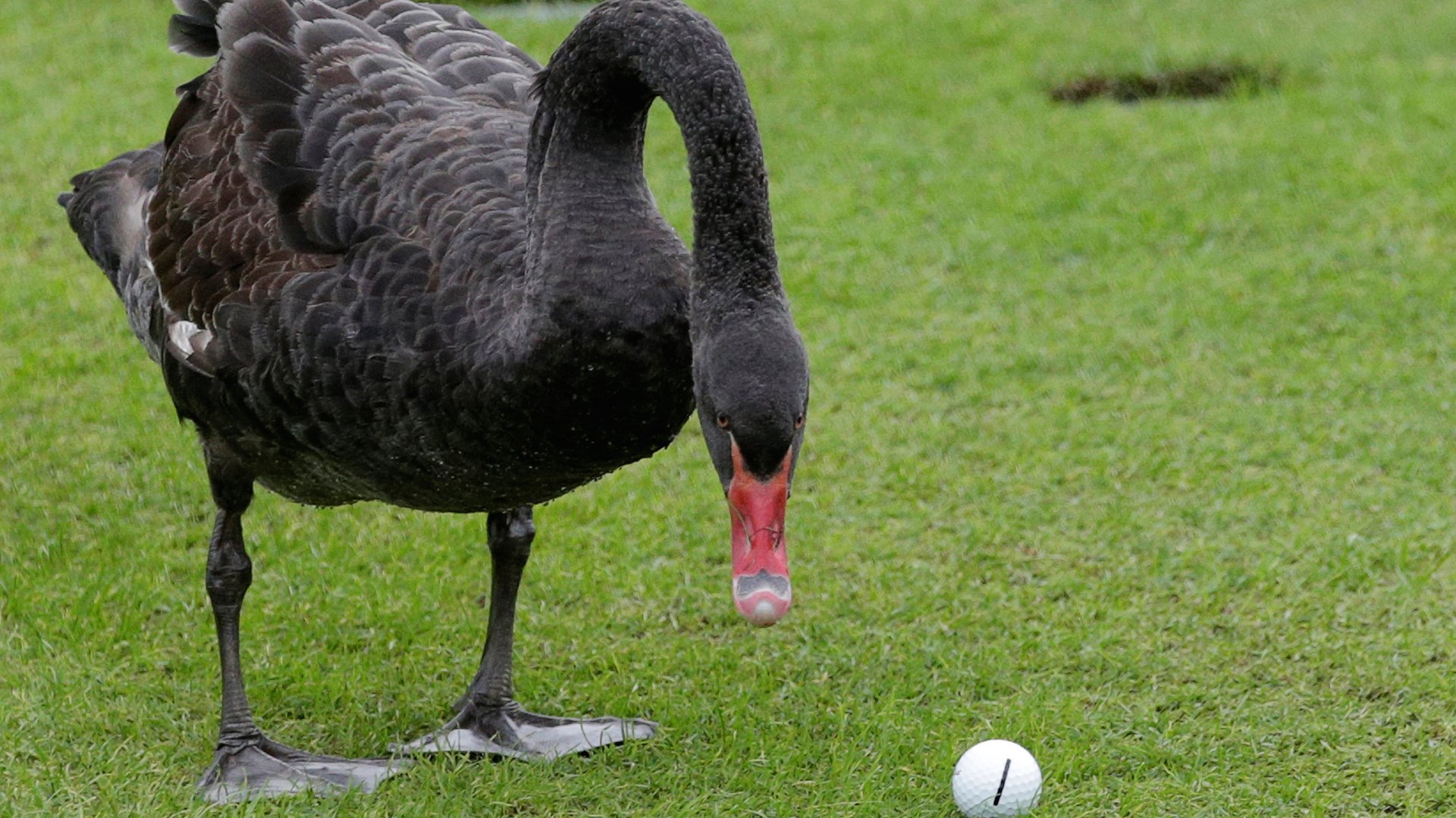A lawsuit over Costco golf balls shows why we can’t have nice things for cheap
Unless you’re a golfer, you probably don’t think about golf balls. But a new US lawsuit about these little dimpled spheres has an economics lesson for all shoppers, showing why consumers have cause for concern when companies use court for sport.


Unless you’re a golfer, you probably don’t think about golf balls. But a new US lawsuit about these little dimpled spheres has an economics lesson for all shoppers, showing why consumers have cause for concern when companies use court for sport.
Costco, the wholesale membership club, rocked the golf world in 2016 when it started selling its Kirkland Signature (KS) golf balls at about $15 per dozen, a quarter to a third the price of popular top-ranked balls. Industry insiders called it a “miracle golf ball” for its great performance and low cost, and Costco sold out immediately. It’s planning to release more in April.
In response to the bargain ball’s reception, however, Acushnet—which makes the popular Titleist balls—sent the membership club a threatening letter. It accused Costco of infringing on 11 patents and engaging in false advertising for claiming that KS balls meet or exceed the quality standards of leading national brands.
Costco quickly fired back in a federal complaint (PDF) filed against Acushnet on March 17 in Washington, asking the court to declare that it’s doing nothing wrong. The wholesale club says it never publicly compared KS balls to any Acushnet balls, and that to the extent it did, claims of comparable quality are in fact true.
But the case may be a ruse. David Dawsey, a golf intellectual-property expert, writes in Golf Patents, “I can’t help but wonder whether Costco has any intention of seeing this through; after all, the cost of litigating the validity of 11 patents will be significant to say the least.”
Indeed, Costco might just be trying to beat Acushnet at a legal game that the ball maker has mastered—court sport. Acushnet has managed to muscle out other upstarts easily, simply by filing complaints.
Tiny manufacturers who can’t afford to litigate have been forced to fold based on Acushet’s accusations alone, with no proof of infringement. For example in 2015, Acushnet sued five small golf-ball makers. The co-founder of one of these companies, speaking on condition of anonymity because of the terms of the settlement, told Quartz that’s just how business is done.
Companies with deep pockets lock down the market by making it too expensive for competitors to operate and to offer lower-priced yet quality products. It is a legitimate tactic; even those who succumb to it don’t really begrudge the approach. The co-founder of the smaller competitor sued by Acushnet said he believes the company decides who to sue based on Golf Digest’s Hot List, which signals potential competitors, and that the company files claims regardless of actual infringement.
He doesn’t believe that Costco is infringing on Acushnet’s patents necessarily. Still, for big companies, it’s worth making official accusations. “We weren’t infringing. But we couldn’t afford to fight the case,” he says. Instead, his company settled the 2015 claims with Acushnet by agreeing to get out of the golf-ball business altogether; it received no payment from Acushnet, nor did it pay.
The sorry consolation is that the threats are a sure sign of success, he says: “We laughed when we got the lawsuit. We knew we made it.” Acushnet told Quartz it would not comment on litigation or its approach to policing intellectual property.
Costco won’t be so easy to push around. Golfers—and other shoppers—should be eager to see how this battle plays out.